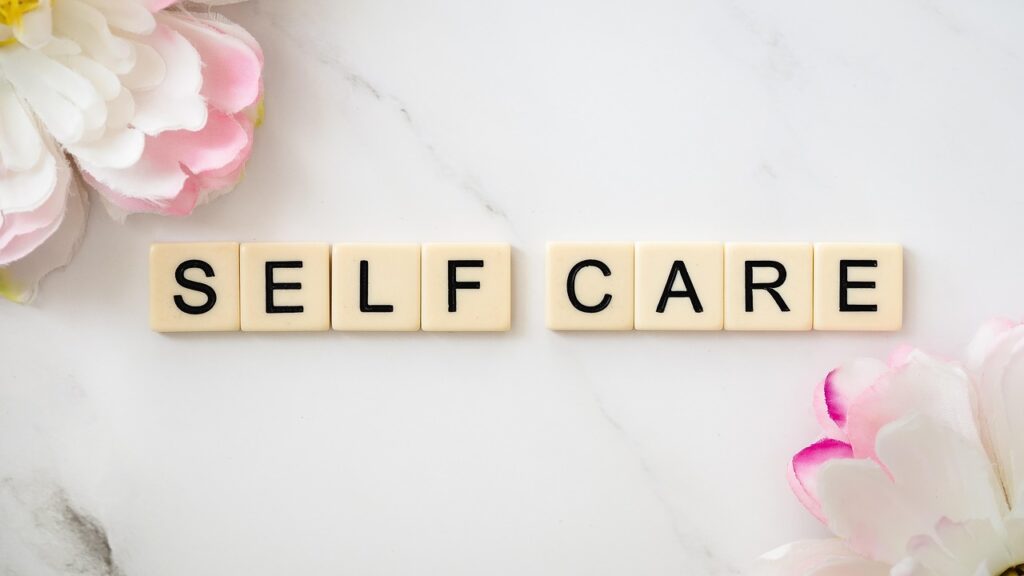Table of Contents
Introduction
In the fast-paced world we live in today, where the demands of work, relationships, and personal aspirations How to practice emotional self-care often seem to be in constant competition for our attention, it’s all too easy for our emotional well-being to take a backseat. However, neglecting our mental health can have severe consequences, leading to stress, burnout, and even physical illness. It’s essential to recognize the importance of emotional self-care and to make it a priority in our daily lives. This article will delve into what emotional self-care entails, its significance, and present seven fundamental strategies to help you cultivate emotional resilience and protect your mental health.
What is Emotional Self-Care?
Emotional self-care involves being in tune with your emotions, understanding your emotional triggers, and developing habits that support emotional balance. It means allowing yourself the space to feel, express, and process emotions in a healthy way. Rather than suppressing feelings or ignoring distress, emotional self-care promotes intentional coping strategies that nurture your psychological well-being.
When you prioritize emotional self-care, you:
- Learn how to set healthy boundaries
- Practice compassion—towards yourself and others
- Understand your emotional needs
- Develop emotional awareness and resilience
- Build self-trust and internal safety
- Improve your ability to respond to life’s challenges with grace and confidence
Ultimately, emotional self-care empowers you to live a balanced and fulfilling life by cultivating inner peace and strength.

Why Emotional Self-Care is Crucial
Ignoring your emotional health can lead to anxiety, burnout, and even physical health problems. People who neglect emotional self-care often experience increased stress levels, emotional outbursts, low motivation, and chronic fatigue. Mental and emotional stress can also manifest physically, contributing to issues like headaches, digestive problems, weakened immunity, insomnia, and chronic pain.
On the other hand, nurturing your emotional health can help you:
- Build stronger relationships
- Improve self-esteem
- Boost productivity
- Navigate challenges with resilience
- Experience greater happiness and inner peace
- Cultivate emotional intelligence
- Foster a stronger sense of purpose and connection
Whether you’re struggling with emotional overwhelm or simply want to cultivate more emotional harmony, these tips will provide a foundation for sustainable well-being.
1. Identify and Acknowledge Your Emotions
The first step toward emotional self-care is recognizing what you feel. Too often, we’re taught to suppress negative emotions or ‘power through’ tough situations. But ignoring emotions doesn’t make them disappear—it only leads to emotional buildup and tension. Emotional awareness is key to taking proactive, compassionate steps toward healing.
Practical Tips:
- Practice journaling: Take 5–10 minutes daily to write how you’re feeling. Use prompts like “Today I feel…” or “What triggered my mood today?”
- Use emotion-tracking apps like Daylio or Moodpath to observe patterns over time.
- Pause and reflect: Ask yourself regularly, “What am I really feeling right now?” or “Why am I feeling this way?”
- Name your emotions: Putting a label to your feelings (e.g., anxious, joyful, overwhelmed) helps diminish their intensity.
Why It Matters:
Acknowledging your emotions allows you to respond rather than react. It provides insight into your emotional patterns and gives you clarity over what you truly need—whether that’s rest, connection, or a change in environment. This awareness is the cornerstone of lasting emotional resilience and allows for deeper self-understanding.


2. Set Healthy Emotional Boundaries
Boundaries are essential in protecting your emotional energy. Whether in relationships, work, or social situations, knowing your limits helps reduce overwhelm and resentment. Without boundaries, you risk being emotionally drained and overcommitted.
Practical Tips:
- Learn to say “no” without guilt. Your time and energy are limited resources.
- Limit time with people who drain your energy. Choose uplifting environments.
- Create a personal “yes” and “no” list based on your emotional capacity and core values.
- Communicate clearly. Assert your boundaries respectfully and firmly.
- Use scripts like “I’m not available for that right now” or “That doesn’t work for me.”
Why It Matters:
Boundaries aren’t about keeping people out; they’re about preserving your peace. They allow you to give from a place of emotional abundance, not depletion. Setting boundaries also enhances the quality of your relationships by fostering mutual How to practice emotional self-care respect, reducing conflict, and nurturing healthier interactions.
3. Practice Mindfulness and Meditation
Mindfulness is the art of living in the present moment without judgment. Meditation enhances this practice by allowing you to observe your thoughts and emotions without becoming overwhelmed by them. Together, they offer a powerful route to emotional regulation.
Practical Tips:
- Start with short meditations (3–10 minutes) using apps like Insight Timer or Calm.
- Try deep breathing exercises like box breathing or 4-7-8 breath when anxious.
- Incorporate mindfulness into daily tasks, like eating, walking, or doing chores.
- Use grounding techniques when emotions feel too intense—focus on your five senses.
- Notice without judging: Observe your thoughts with curiosity rather than criticism.
Why It Matters:
Mindfulness and meditation reduce stress, sharpen focus, and improve emotional intelligence. They create a gap between stimulus and response, allowing you to choose how you react instead of being ruled by impulse. This conscious response mechanism strengthens your ability to navigate emotional highs and lows with grace.
4. Engage in Positive Self-Talk
Your inner voice holds immense power. Negative self-talk can undermine your confidence, fuel anxiety, and deepen How to practice emotional self-care emotional wounds. In contrast, positive self-talk encourages self-acceptance, resilience, and healing.
Practical Tips:
- Challenge negative thoughts: Ask yourself, “Is this thought based on facts or fear?”
- Reframe your inner dialogue: Instead of “I’m a failure,” say, “I made a mistake, and I’m learning.”
- Use affirmations: Say things like “I am enough,” “I can handle this,” or “I choose calm.”
- Practice mirror work: Look yourself in the eye and speak kind words aloud.
- Surround yourself with positivity: Read uplifting books, listen to empowering podcasts, and limit exposure to negativity.
Why It Matters:
Your brain believes what you tell it most often. Replacing self-criticism with self-compassion leads to increased confidence and emotional resilience. Over time, positive self-talk helps rewire your brain for kindness, self-worth, and emotional equilibrium.


5. Connect with Others Authentically
Humans are wired for connection. Emotional self-care includes cultivating relationships that are honest, supportive, and reciprocal. It’s not just about socializing—it’s about being seen and accepted for who you truly are.
Practical Tips:
- Reach out to loved ones regularly, even just for a short call or message.
- Join interest-based How to practice emotional self-care communities or support groups to meet like-minded people.
- Be vulnerable: Share your feelings openly with trusted individuals.
- Practice active listening when others share their emotions with you.
- Limit toxic relationships and nurture the ones that uplift and inspire you.
Why It Matters:
Authentic connections create a sense of belonging and reduce feelings of loneliness. Having someone to talk to, laugh with, or lean on during tough times enhances emotional strength and well-being. Relationships based on honesty, empathy, and support are healing in themselves.
Ignoring your emotional health can lead to anxiety, burnout, and even physical health problems. People who neglect emotional self-care often experience increased stress levels, emotional outbursts, low motivation, and chronic fatigue. Mental and emotional stress can also manifest physically, contributing to issues like headaches, digestive problems, weakened immunity, insomnia, and chronic pain.
On the other hand, nurturing your emotional health can help you:
- Build stronger relationships
- Improve self-esteem
- Boost productivity
- Navigate challenges with resilience
- Experience greater happiness and inner peace
- Cultivate emotional intelligence
- Foster a stronger sense of purpose and connection
Whether you’re struggling How to practice emotional self-care with emotional overwhelm or simply want to cultivate more emotional harmony, these tips will provide a foundation for sustainable well-being.
6. Do Activities That Bring Joy and Release
Joy is not optional—it’s essential for emotional balance. Engaging in activities that uplift you can help break cycles of stress and bring perspective to life’s challenges.
Practical Tips:
- Make a list of activities that bring you joy—music, nature, art, cooking, etc.
- Schedule joy breaks into your week, even if just 15 minutes a day.
- Try something new: Take a class, explore a hobby, or learn a fun skill.
- Laugh often: Watch comedies, read funny books, or talk to humorous friends.
- Reconnect with childhood joys: Revisit games, books, or creative play that once made you happy.
Why It Matters:
Joy boosts mood-regulating chemicals in the brain like dopamine and serotonin. It acts as a buffer against stress and How to practice emotional self-care helps regulate emotions, making it easier to maintain a positive outlook even when life gets tough. It’s a vital way of nourishing your spirit.
7. Seek Professional Help When Needed
Sometimes, emotional self-care means acknowledging that you need support beyond your current capacity. Seeking help from a therapist, counselor, or coach is a brave and powerful form of self-care.
Practical Tips:
- Don’t wait for a crisis—seek support as soon as you feel emotionally overwhelmed.
- Explore therapy formats: In-person, online, individual, group, or holistic counseling.
- Try platforms like BetterHelp, Talkspace, or local mental health services.
- Keep an open mind: Therapy is not a sign of weakness—it’s an investment in your well-being.
- Journal about your sessions: Reflecting on therapy helps integrate lessons and track growth.
Why It Matters:
Therapists provide a safe, objective space to explore your emotions and challenges. They offer personalized tools, coping How to practice emotional self-care strategies, and insights that support lasting emotional healing. Asking for help is not a weakness—it’s a sign of strength and self-awareness.
Ignoring your emotional health can lead to anxiety, burnout, and even physical health problems. People who neglect emotional self-care often experience increased stress levels, emotional outbursts, low motivation, and chronic fatigue. Mental and emotional stress can also manifest physically, contributing to issues like headaches, digestive problems, weakened immunity, insomnia, and chronic pain.
On the other hand, nurturing your emotional health can help you:
- Build stronger relationships
- Improve self-esteem
- Boost productivity
- Navigate challenges with resilience
- Experience greater happiness and inner peace
- Cultivate emotional intelligence
- Foster a stronger sense of purpose and connection
Whether you’re struggling with How to practice emotional self-care emotional overwhelm or simply want to cultivate more emotional harmony, these tips will provide a foundation for sustainable well-being.
Bonus Tips for Deepening Your Emotional Self-Care Practice
Ready to go further? Here are some additional ways to enhance your emotional self-care:
- Digital Detox: Set boundaries with social media and technology to reduce emotional overstimulation.
- Gratitude Journaling: Write three things you’re grateful for each day.
- Sleep Hygiene: Prioritize consistent, quality sleep for better emotional regulation.
- Nutrition & Hydration: Eat balanced How to practice emotional self-care meals and drink plenty of water—your brain needs fuel to process emotions.
- Move Your Body: Try yoga, walking, dancing, or stretching to release physical and emotional tension.
- Creative Expression: Channel your emotions into art, music, writing, or crafts.
- Nature Therapy: Spend time outdoors, which helps calm the nervous system and reduce anxiety.
- Practice Saying Kind Words to Yourself: Even a simple “I see you, and you’re doing great” can change your emotional tone.
Each of these practices supports emotional wellness from a holistic perspective.
Ignoring your emotional health can lead to anxiety, burnout, and even physical health problems. People who neglect emotional How to practice emotional self-care How to practice emotional self-care How to practice emotional self-care How to practice emotional self-care How to practice emotional self-care How to practice emotional self-care How to practice emotional self-care How to practice emotional self-care self-care often experience increased stress levels, emotional outbursts, low motivation, and chronic fatigue. Mental and emotional stress can also manifest physically, contributing to issues like headaches, digestive problems, weakened immunity, insomnia, and chronic pain.
On the other hand, nurturing your emotional health can help you:
- Build stronger relationships
- Improve self-esteem
- Boost productivity
- Navigate challenges with resilience
- Experience greater happiness and inner peace
- Cultivate emotional intelligence
- Foster a stronger sense of purpose and connection
Whether you’re struggling with How to practice emotional self-care emotional overwhelm or simply want to cultivate more emotional harmony, these tips will provide a foundation for sustainable well-being.


Final Thoughts: Emotional Self-Care is a Lifelong Journey
Emotional self-care is not a one-time act—it’s an ongoing commitment to your well-being. Some days, it will come naturally, and other days, it will feel like hard work. But every effort you make counts.
Think of emotional self-care as an act How to practice emotional self-care of love toward yourself. By tending to your emotional needs, you not only become more resilient and peaceful but also more available to support others. Prioritize yourself—you deserve it.
Remember: Just like you wouldn’t ignore physical pain, don’t ignore emotional discomfort. Nurture yourself with the same kindness you offer others. The better you care for your emotional health, the brighter and How to practice emotional self-care more balanced your life will become.
Conclusion
Have you started practicing emotional self-care? Which tip resonated most with you? Share your journey in the comments How to practice emotional self-care below and inspire others to start their own emotional healing.
Don’t forget to share this blog with someone who might need a reminder to slow down and care for their inner world.
Your emotional health is not a luxury—it’s your birthright. Start your emotional self-care journey today and watch your life transform before your eyes.
In the fast-paced world we live in today, where the demands of work, relationships, and personal aspirations often seem to be in constant competition for our attention, it’s all too easy for our emotional well-being to take a backseat. However, neglecting our mental health can have severe consequences, leading How to practice emotional self-care to stress, burnout, and even physical illness. It’s essential to recognize the importance of emotional self-care and to make it a priority in our daily lives. This article will delve into what emotional self-care entails, its significance, and present seven fundamental strategies How to practice emotional self-care to help you cultivate emotional resilience and protect your mental health.
In the fast-paced world we live in today, where the demands of work, relationships, and personal aspirations often seem to be in constant competition for our attention, it’s all too easy for our emotional well-being How to practice emotional self-care to take a backseat. However, neglecting our mental health can have severe How to practice emotional self-care consequences, leading to stress, burnout, and even physical How to practice emotional self-care illness. It’s essential to recognize the importance of emotional self-care and to make it a priority in our daily lives. This article will delve into what emotional self-care entails, its significance, and present seven fundamental strategies to help you cultivate emotional resilience and protect your mental health.
In the fast-paced world we live in today, where the demands of work, relationships, and personal aspirations often seem to be in constant competition for our attention, it’s all too easy for our emotional well-being How to practice emotional self-care to take a backseat. However, neglecting our mental health can have severe consequences, leading to stress, burnout, and even physical illness. It’s essential to recognize the importance of emotional self-care and to make it a priority in our daily lives. This article will delve into what emotional self-care entails, its significance, and present seven fundamental strategies to help you cultivate emotional resilience and protect your mental health.
Ignoring your emotional health can lead to anxiety, burnout, and even physical health problems. People who neglect How to practice emotional self-care emotional self-care often experience increased stress levels, emotional outbursts, low motivation, and chronic fatigue. Mental and emotional stress can also manifest physically, contributing to issues like headaches, digestive problems, weakened immunity, insomnia, and chronic pain.
On the other hand, nurturing your emotional health can help you:
- Build stronger relationships
- Improve self-esteem
- Boost productivity
- Navigate challenges with resilience
- Experience greater happiness and inner peace
- Cultivate emotional intelligence
- Foster a stronger sense of purpose and connection
Whether you’re struggling with emotional overwhelm or simply want to cultivate more emotional harmony, these tips will provide a foundation for sustainable well-being.